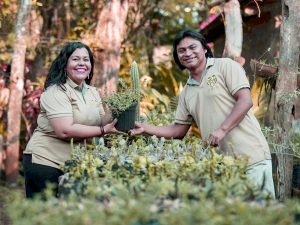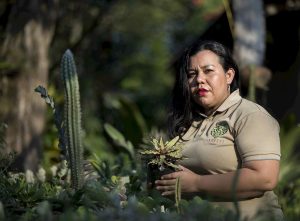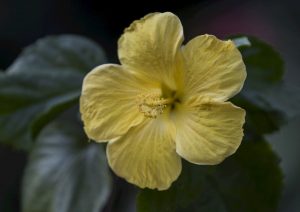By Renee Lucia Ramos

El Rosario, Nicaragua, Jan 29 (efe-epa).- Nicaraguan journalist Ramon Potosme, a member of the Chorotega indigenous people, quit his job and – along with his wife, fellow-journalist Rotsen Lopez – founded an organic nursery with the aim of rescuing therapeutic plants that have been used for thousands of years but now are almost extinct in the Central American country.
Six years ago, the couple founded the Nambume nursery (which in the Chorotega language means “heart”), which is dedicated to producing and selling medicinal, ancestral, culinary, citrus and ornamental plants, among others, the 33-year-old Potosme, who is proud of his ethnic origins, told EFE.
He said his ancestors were healers, midwives or devoted themselves to the practice of natural medicine.

From his father, he said, he learned to maintain a “relationship of love” with plants, because they returned that “affection” by providing medicines.
Thus, in his nursery, located in the community of Cañas Blancas, in Carazo province, 54 kilometers (33 miles) southeast of Managua, he speaks to the plants, asks their permission to transplant them and promises to take care of them in exchange for their growing beautiful.
That is part of the ceremony the couple performs, telling with pride that they started the nursery with the idea of preserving and promoting the use of therapeutic ancestral plants for medicinal purposes.
“We tell them to behave well, grow nicely, that I’m going to give them love and take care of them. I make a promise to them and ask for something (in return),” said Potosme, whose practices date back to the Chorotega, an ethnic group that lives in Honduras, Nicaragua and Costa Rica.

Potosme gleaned a huge amount of knowledge about the curative value of plants from his ancestors.
In addition, having dignified work has allowed the couple to make a living and preserve medicinal plants that have been used by local indigenous peoples for thousands of years.
Among the plants they cultivate are the Cihuapate, useful for alleviating menstrual cramps; the Totoquelite for coughs; and xiauitl zompelic, a sweet plant that is almost extinct in Nicaragua but has been used for many years to deal with respiratory problems, to make syrup or sweeten medications.
The Nambume nursery is 100 percent organic and pesticide-free.
Potosme said he talks to the plants and develops a loving relationship with them “because it’s something my father did. He said that one had to ask permission from a plant to be able to remove a branch, to take a leaf, because (the plant itself) was providing medicine for you.”
Also, “when I transplant it from one place to another, I want (the plant) to understand that I know what I’m doing and that I want something better for it.”
